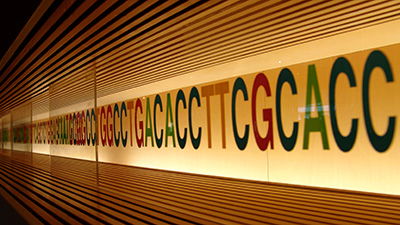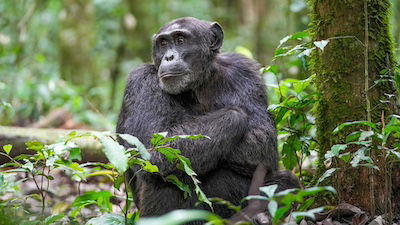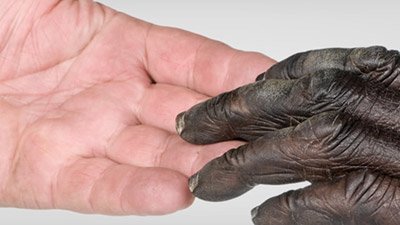
DNA We're Missing Makes Us Human
PhysOrg: “Missing DNA Helps Make Us Human” No one, not even evolutionists, disputes that humans have crossed a threshold that sets us apart from the rest of the animal kingdom—even chimpanzees, our “close evolutionary relatives.” But according to new research, it’s actually the genes we don’t have that sets us apart.
A team from Howard Hughes Medical Institute and Stanford University have been busy scanning human and animal genomes to find out what makes us different—genetically, that is. Recently, the team located 510 genetic segments that are found in chimps and other animals but are missing from humans.
Interestingly, only one of the 510 missing segments disrupts a gene; 509 of the discrepancies are in the gene-regulating sequences surrounding the actual protein-coding genes. The researchers believe the missing sequences can account for much of what makes humans unique, such as our larger brains. For example, many of the missing sequences were clustered around the genes that help control neural development.
The team also experimented on mice to further understand the consequences of the missing genes; one of the stranger results of the differences is that humans lack sensory whiskers.
Mutations leading to information loss are not incompatible with young-earth creation, and it is theoretically possible some of the smaller differences could have arisen naturally.
Although the scientists are cautious, pointing out that there is still much work to be done to more fully understand what makes us human, they believe the results are a start. Of course, the idea that the gene sequences have gone “missing” is an evolutionary artifact. Instead, it seems more reasonable that the differences are the result of God’s unique creation of humans in His image (Genesis 1:27); however, mutations leading to information loss are not incompatible with young-earth creation, and it is theoretically possible some of the smaller differences could have arisen naturally.
Also of note is that a press release for the news states that we share 96 percent of our DNA with chimpanzees, while a news release on a related topic puts the figure at 98.7 percent; for more on this debate, see Greater than 98% Chimp/human DNA similarity? Not any more.
For more information:
- Get Answers: Genetics
- If Human and Chimp DNA Are So Similar, Why Are There So Many Physical and Mental Differences Between Them?
Remember, if you see a news story that might merit some attention, let us know about it! (Note: if the story originates from the Associated Press, Fox News, MSNBC, the New York Times, or another major national media outlet, we will most likely have already heard about it.) And thanks to all of our readers who have submitted great news tips to us.
(Please note that links will take you directly to the source. Answers in Genesis is not responsible for content on the websites to which we refer. For more information, please see our Privacy Policy.)

Answers in Genesis is an apologetics ministry, dedicated to helping Christians defend their faith and proclaim the good news of Jesus Christ.
- Customer Service 800.778.3390
- Available Monday–Friday | 9 AM–5 PM ET
- © 2026 Answers in Genesis



